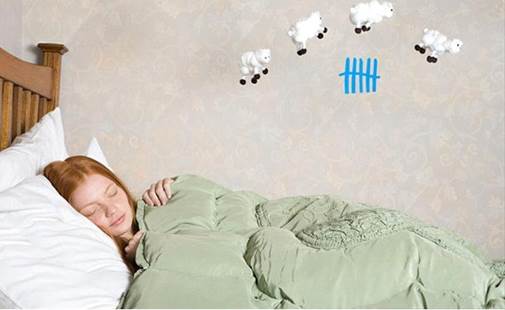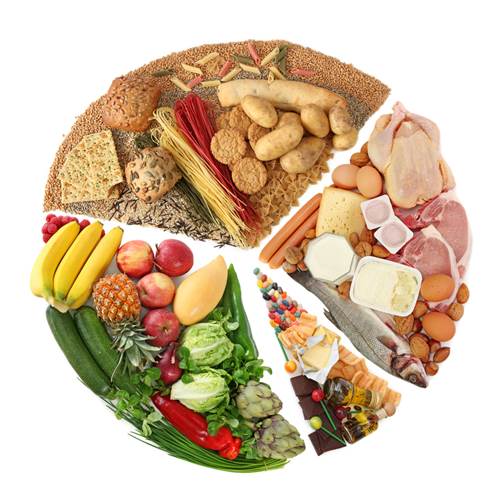When you find yourself tossing and turning
before finally drifting off? Do you often wake up in the middle of the night,
mind racing with work worries? If so, you could be suffering from “Semi-Somnia”
- a sleep disorder that experts are calling insomnia’s irritating little
sibling’. Rather than a completely sleepless night, those affected by Semi-Somnia
experience short bouts of sleep disruption, usually during particularly busy or
stressful periods.

Rather
than a completely sleepless night, those affected by semi-somnia experience
short bouts of sleep disruption, usually during particularly busy or stressful
periods.
Millions of people in the UK will suffer
with insomnia at some time in their lives, and new research has suggested that
even more will have to cope with semi-somnia. So why is this new sleep disorder
plaguing us and how can we control it?
Modern problem
Once upon a time, when 5pm rolled around,
you’d shut down your computer and forget about spreadsheets, clients and office
politics until 9am the next day. But thanks to the advent of internet, the
working day is never really over. ‘Technology means we have become over-paced
and stressed,’ says Sammy Margo, sleep expert and author of The GoodSleep Guide
(sammymargo.com). ‘It affects our ability to sleep, because our minds are
constantly whirring away.’
Not surprisingly, The Great British Sleep
Survey 2012 found that a ‘racing mind’ is the most common cause of
sleeplessness, with 82 per cent of respondents citing unstoppable thoughts as
the main reason they struggle to settle at night.

‘It
affects our ability to sleep, because our minds are constantly whirring away.’
Sammy explains that we’re simply too busy.
We want to prove ourselves, professionally and socially, and show people we
‘have it all’. We’re ignoring what our bodies are telling us and treating sleep
as the least important item on our to-do lists. ‘But we shouldn’t treat our
need to sleep as an optional extra,’ says Professor Colin Espie, clinical and
scientific director of online sleep improvement program Sleepio (sleepio.com),
which conducted the survey. ‘We should prioritize it, because good sleep
delivers good daytime wellbeing, affecting our energy, mood, concentration and
personal functioning.’
Quality sleep is fundamental for life and
without it, our health and relationships are seriously compromised.
Tired but wired
With our increased use of technology, not
just for work, but for fun too - think online shopping, checking Facebook,
tweeting, updating P interest boards - our brains are in a constant state of
arousal. This information overload means that, come bedtime, we have so much to
process that our brains simply can’t handle it. Even if we do manage to fall
asleep, we tend to experience ‘fizzy sleep’, a term coined by Dr Nerina
Ramlakhan, sleep coach at London’s Capio Nightingale Hospital. It means that we
spend longer in the phase of sleep where we process information and less time
in deep sleep, which is what we need to wake up feeling refreshed and ready to
go.
The best way to counteract this is to step
away from your computer at regular intervals throughout the day and avoid
surfing the net unnecessarily - if you’re waiting for the train, for example,
allow your mind to wander rather than whipping out your iPhone. This will allow
your brain to process the information it already contains, without adding a
heap of new material to its load.

The
best way to counteract this is to step away from your computer at regular
intervals throughout the day and avoid surfing the net unnecessarily
Studies have found that the bright screens
on computers can reduce melatonin (the hormone that induces sleep) levels by
nearly a quarter, while research has shown that people exposed to the radiation
emitted by mobile phones before bed take longer to enter the deepest stage of
sleep. ‘Cornputers, phones and TVs over-stimulate our minds and ruin our
sleep,’ says Sammy. ‘Introduce a technology cut-off time and turn them off an
hour before bed.’ Dubbed ‘electronic sundown’, it allows time for your natural
sleep system to kick in. To make it more effective, keep electronic gadgets out
of the bedroom.
Save your sleep
‘We’re leading physically underactive and
mentally overactive lifestyles,’ says Sammy. ‘Technology makes us more
sedentary and many people aren’t exercising regularly.’ Making the effort to
exercise will lead to better-quality sleep, particularly if you get moving
during daylight hours - if you exercise later in the evening, the adrenaline
rushing around your body could make it tricky to nod off. Sammy explains that
aerobic activity in particular positively impacts sleep, so she encourages
making it a part of your everyday routine. ‘Jump off the bus one stop early or
go for a long walk on your lunch break,’ she suggests.
Food can also affect your snooze control.
‘Eating a varied diet and maintaining a healthy weight will have a positive
impact on your sleep,’ says Professor Espie. Some foods will also boost your
production of melatonin - think almonds, oats, lettuce, Marmite, potatoes and
turkey - while a banana acts as nature’s sleeping pill, says Sammy. ‘The
potassium and magnesium re lax muscles and nerves, while the fruit also
encourages serotonin to be produced in the body, relaxing you even more,’ she
explains. ‘Drinking hot milk, chamomile tea, OvaItine or Horlicks before you
lay your head down may also help you to get to sleep.’

‘Eating
a varied diet and maintaining a healthy weight will have a positive impact on
your sleep,’ says Professor Espie
Eating at the right time is also crucial to
getting a good night’s sleep. Many people grab a small on-the-go dinner before
a social event in the evening, then wonder why they wake up in the middle of
the night with hunger pains, says Sammy. ‘And caffeine has a lot to answer
for,’ she adds. ‘Caffeine after lunch may affect your sleep as it stimulates
the nervous system.’ So, swapping it for an afternoon decaf coffee or a herbal
tea is a safer bet for a sound sleep.
Similarly, alcohol disrupts sleep patterns,
so while a glass of wine before bed is fine, any more and you’re at risk of
ruining your night. ‘Alcohol may help you to fall into a deep sleep at the
beginning of the night, but may put you into a lighter sleep as the night
continues,’ explains Professor Espie. He also advises binning the Ciggies. ‘Cut
down on smoking in the evening as the nicotine in cigarettes may make it harder
to fall asleep and stay asleep,’ he tips.